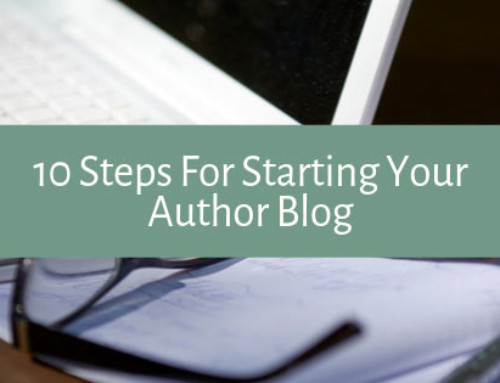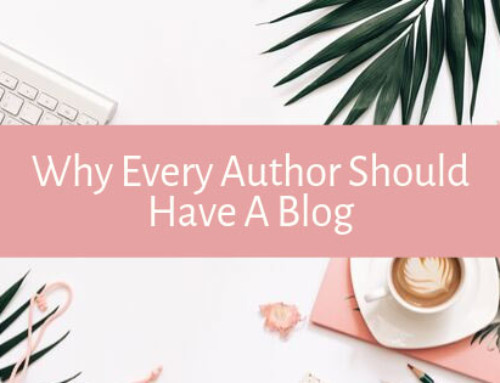It is a truth universally acknowledged that an indie author with a good book must be in search of reviews. And with good reason: book reviews can sell books. How? By helping other readers find new books. Reviews are word-of-mouth marketing. (Which is often the best kind.)
That said, book reviews often aren’t written with the author in mind. For many book reviewers on Goodreads or Amazon, they believe the author has no place in the reviews space. But that’s okay; writing a book review for other readers is beneficial for authors too, since it helps people determine whether the book is right for them.
What a Book Review Is
In the online space of Amazon, Goodreads, and social media, what a book review is depends on who’s writing it. Generally, a book review is less a “review” and more of a detailed opinion that explains what the reviewer liked or didn’t like about a book, or the review may be the person’s reaction to the book while reading.
While a lot of reviewers write to help themselves remember what they read or to tell other readers about the book (good or bad), the book reviews that help indie authors are the ones posted where readers will ultimately make their purchasing decision—or where the readers go for trusted opinions.
Most readers have three main review sources for making a decision about a book: Amazon, Goodreads, and fellow readers whose opinions they trust. The Internet has a strong book community, and a lot of readers connect through social media and book blogging.
What Readers Look for in a Book Review
Knowing how to write a killer book review starts with knowing what information readers look for. When people read reviews, they usually don’t look for one particular part a review: it’s a combination of information, from the star rating, to the number of reviews, to common themes in the reviews—just as an example—that influences their decision.
Here’s a list of common aspects of reviews and book information that readers want to know:
Star rating—The average star rating of a book gives a good overview of what people think. Don’t forget to including your star rating to your review, and don’t stop there either. A rating with no explanation is not a review and won’t entice other readers
Pro tip: Each review site (Amazon and Goodreads, but also book blogs) has its own standard for star ratings and what each rating means. A three-star rating on Goodreads isn’t the same as a three-star on Amazon. The best suggestion? Decide what the star ratings mean to you and be consistent in your ratings.
Number of reviews—The more reviews a book has, the easier it is for readers to get a feel for whether the book might be a good choice for them. More reviews also mean that more readers have read the book (obviously), but more reviews usually gives a greater spectrum of opinions about the book.
Synopsis—Readers want to know what a book is about. While places like Goodreads and Amazon include the synopsis on the page where your review will appear, it’s a good idea to include something in your review about what happened in the book—without giving away everything that happens.
Verified purchases—Specific to Amazon, verified purchases mean that Amazon can verify the book was bought through them. This means it’s more likely the person has read the book before reviewing, and therefore carries more weight with Amazon’s algorithms (and people reading reviews.)
Likes and dislikes—What a reader liked or disliked about a book can tell you a lot about whether you’d like the book, too. If you don’t like romance with explicit scenes, for example, and a reviewer talks about how much she loved the explicit love scenes, you know you probably want to avoid the book.
Themes across reviews—What one person says may be specific to that person. If a bunch of people begin to say the same things about a book, it’s worth taking note. Usually these themes relate to the likes and dislikes of reviewers, but could also be about overall holes in the work, or even grammar or typos.
Comparisons to another author or book—When it comes to trying out a new author, readers are more likely to take a chance if the author is compared to another author or book they know. These comparisons are usually to put the author’s writing in context, which helps readers determine if the new author would be someone they’d like to read.
Post a Book Review, Help Readers and Authors
Book reviews are invaluable to readers and authors. Posting reviews helps readers figure out which books they might want to read next. And that’s exactly why reviews help authors, too. An informative review, written with the information readers are looking for, can help readers discover new books.
One of the best ways to help indie authors is to post a review of their books across different sites—what’s called “cross posting” reviews. Write one review, post it on Amazon, Goodreads, or wherever else you might find someone looking for a book to read (social media or bookstore sites).
Book Review Example aka the Recipe
What makes a killer book review? Keeping in mind what people look for in book reviews, a general outline—or recipe, if you will—might go something like this:
• Your star rating. Be consistent with your star ratings, whether you follow the model of Amazon, Goodreads, or your own. If you write a lot of reviews, people will begin to learn what your star ratings mean.
• Your likes and dislikes about the book. These opinions about the book can also include hints at what happens, so other people can determine whether they might like the book too.
• Comparisons to another author or book. Comparisons can go a long way toward giving other readers context for a new author or book. In fact, many readers go in search of books similar to ones they love. Here’s an example: The Magicians series has magic and magic school like Harry Potter, but the feel of Catcher in the Rye. If you like both those books, you might want to read The Magicians.
Writing reviews isn’t as difficult as it sounds—and it can help your favorite indie authors, too. Once you know what people look for in books reviews, you can write a killer one. What are you waiting for? Get writing!
Discover more from Mill City Press
Subscribe to get the latest posts sent to your email.














Leave A Comment